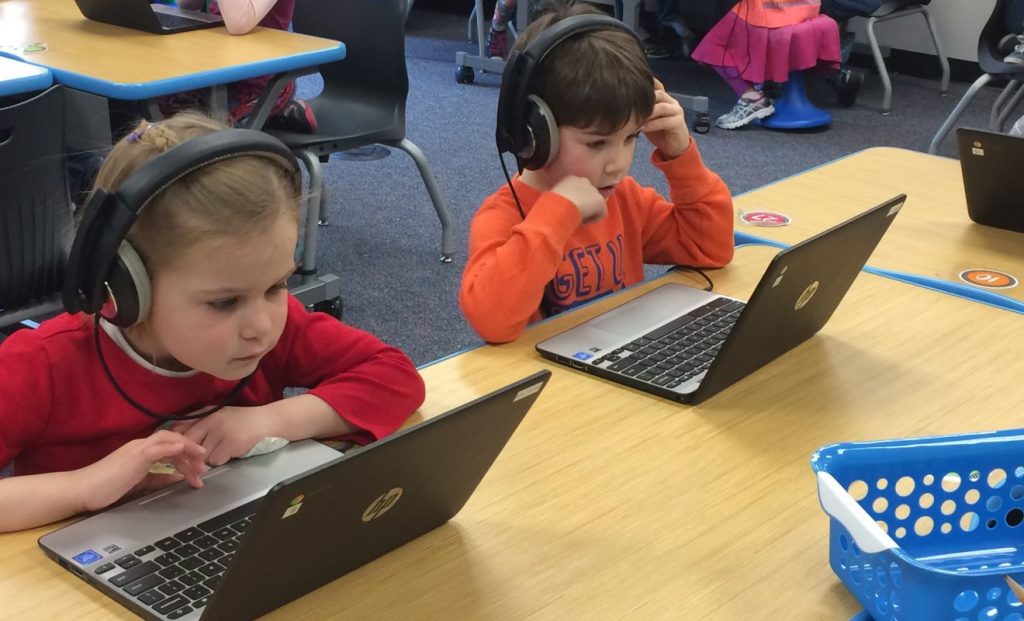Parent Alert! A Tech Check for Back to School
A Tech Check is Essential for Back-to-School Safety
Have you finished your back-to-school preparations yet? While you are taking care of new backpacks, clothes, and haircuts, consider doing this: A Tech Check for Back to School to help your family start off the year with good digital habits and boundaries in place. It is much better to start this up front then have to back peddle later.
Tips for parents: Check out some of these online resources to help your kids develop good online habits.
Preschool (5 and under)
It’s never too early to start developing digital safety skills, especially with your preschooler! Preschool children are online for an average of 71 minutes a day. Internet Matters has developed some practical e-safety tips to help your preschooler start off on the right course.
- Use parental controls now – don’t wait! Circle by Disney is a great way to start.
- Set and follow rules for when and how long kids can have screen time.
- Explore the digital world together
Elementary Age (6 – 11)
NetSmartz (a project of the National Center for Missing and Exploited Children) has just released a new YouTube series called Into the Cloud. These short animations feature characters Nettie and Webster, who teach about online privacy and safety. Parents should watch these videos with their kids – they make fun and age-appropriate conversation starters.
Don’t scare your kids with all the bad things out there and remember you don’t have to tell them everything. just let them know that much like walking down the street alone can be dangerous, so can browsing the internet.
Tweens (9 – 12)
This Internet Safety Contract from SchoolFamily.com is a good checklist to review the major internet rules that your family will abide by. Even if you don’t use it formally and have your child sign it, this can guide a discussion for appropriate, safe boundaries.
Setting boundaries early and in writing prevents miscommunication and, in our hectic daily lives, forgetting what we said two weeks ago. It creates consistency and continuity for the kids.
Tip: Remind kids that apps and many video games connect to other people through the internet, and the same rules apply in all online situations!
Teens
To help your teens plan a thoughtful schedule that includes a variety of non-tech activities (exercise, school, homework, family time, etc.), take a look at the media time calculator from the American Academy of Pediatrics. This can be a great way to begin talking with your teen about what her new routine will look like this fall, and how she can budget her time wisely to meet her academic and personal goals.
Please note: Not just Kids but all people statistically are more depressed the more time they spend online. Teenagers are already hormonal with out this extra stimulus.
Tech at School
Find out what technology your child’s school will be using and what their policies are.
Mobile phones
- Are mobile devices allowed in the classroom? If so, how will they be used to support learning?
- Is texting allowed in the classroom? If not, will this be enforced and how?
Internet access
- Does the school use filtering software? How is your child’s school protecting kids from accessing inappropriate material (intentionally or otherwise)?
- Can students bypass school controls and log into their own network?
- Is the school’s Wi-Fi protected and private?
Teacher communication
- Will social media networks be used to connect students with their teachers and/or their classmates for homework or projects?
- What are the teacher’s rules and expectations for online communication?
- Are teachers and students allowed to be “friends” on social media? Talk to your kids about appropriate communication (with peers and adults).
Bullying
- Does your child’s school have a cyberbullying policy?
- How does the school educate students about cyberbullying and how to report it?
- What penalties are in place for cyberbullying incidents?
Passwords
Remember, to please talk with your Kids about password security as well. Based on a recent survey from Statista, young people are more careless with passwords. 34% of people aged 18 to 34 years use the same password for “most online logins,” compared to only 20% of the 35 to 54 demographic, and only 13% for those older than 55. In addition, a whopping 10% of 18- to 34- year-olds use the same password for all their online keys.
Remember to review the school’s expectations with your child to reinforce good digital citizenship, and ask if the school does there own Tech Check For Back to School



